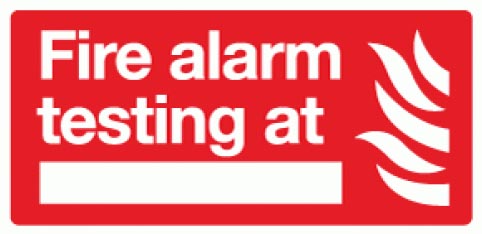
Fire safety might not be the first thing on your mind as you try to run and grow your business, but taking the steps necessary to ensure your commercial fire alarm system is tested and in compliance with requirements outlined by the fire code goes a long way in keeping you, your employees and your business safe.
These alarms not only keep your employees safe if there is a fire in your building, but also alert the authorities if a fire erupts outside of business hours. Keeping these systems working properly requires regular testing by a licensed technician, who will determine whether or not your fire alarm system and associated components are compliant with NFPA 72: National Fire Alarm and Signaling Code and identify areas that may need attention, such as faulty components that would need to be swapped out.
The regular inspection and maintenance of your fire alarm system also helps to ensure that your fire alarm systems align with any fire protection requirements outlined by your insurance provider, which could save you money should you need to make a claim against your policy.
Initial Testing Guidelines
The fire alarm system could become compromised at any time, either during installation or after. System tests conducted when the system is first installed will confirm whether or not the installation has met all of the requirements as determined in the NFPA 72, as well as any other related standards and codes. This initial testing must also prove the fire safety system is operating in the proper sequence, according to safety guidelines. Following testing, the engineer will need to issue to the building owner or manager a comprehensive ledger that explains the type of testing that was conducted, whether or not the system passed, and what kind of improvement are required if enhancements to the system need to be made to ensure compliance.. Records of this testing must be kept secure and on hand in the case they're needed for legal defense in a court of law.
Periodic Inspections
Annual fire alarm inspections must always be conducted by licensed technicians, while associated suppression systems need to be tested every six months. Depending on the size of your building, it may be necessary to schedule monthly inspections. For example, in a larger building, certified technicians will test a portion of your fire alarm system on a monthly basis, examining a different system zone each time.
Various factors can impact the effectiveness of a smoke alarm and impact its ability to function at optimal level. Following testing requirements outlined by the fire code help to limit equipment issues related to:
Dust and dirt buildup,
Vandalism or tampering,
Lack of monitoring of system connectivity
Improper installation
Environmental exposures to temperature, humidity and voltage
System aging
Preventing False Alarms
Keeping your fire alarm system in optimal working order prevents annoying false alarms, which can not only cost you a lot of money, but also cause some trouble with your local fire department. You'll likely have to pay for any false alarms in which the fire department investigates the cause of the alarm. You can also end up with with a hefty fine if the fire department responds to too many false alarms.
Where There's Smoke, There's Fire
Smoke and smoke inhalation represents a significant risk for buildings owners and managers, even more so than a fire. In fact, more people die from smoke inhalation than they do burns from a fire. Thick and heavy smoke in a confined area can incapacitate occupants quickly, and render them unable to reach a building's exit. Fire alarm and detection systems must be able to warn people early enough in the case of a fire to ensure they have time reach an exit, and avoid falling victim to a smoke inhalation-related incident. The fire alarm and detection systems must also activate early enough to notify firefighters and first responders so that they're able to contain the fire quickly, help to minimize property damage and preserve your assets.
Why You Need a Service Contract
Establishing a strong relationship with a fire testing provider is a good step to take to keep your fire alarm systems operating optimally. Many providers offer service contracts that include regular maintenance and general upkeep to make sure you're in compliance with fire code requirements. Investing in a service contract generally provides discounts for parts and labor, saving you money if there's any issues with your system while maintaining compliance, giving you the peace of mind that your alarms are working properly.
The Bottom Line: You Should Know How to Spot Potential Issues
Fire alarm systems are designed to last for years, but that doesn't mean they don't need attention. Taking the steps necessary to ensure your fire alarm system is inspected regularly and necessary repairs are taken care of quickly keeps your system in top operating condition, prevents the loss of life and limits damage to your property.






